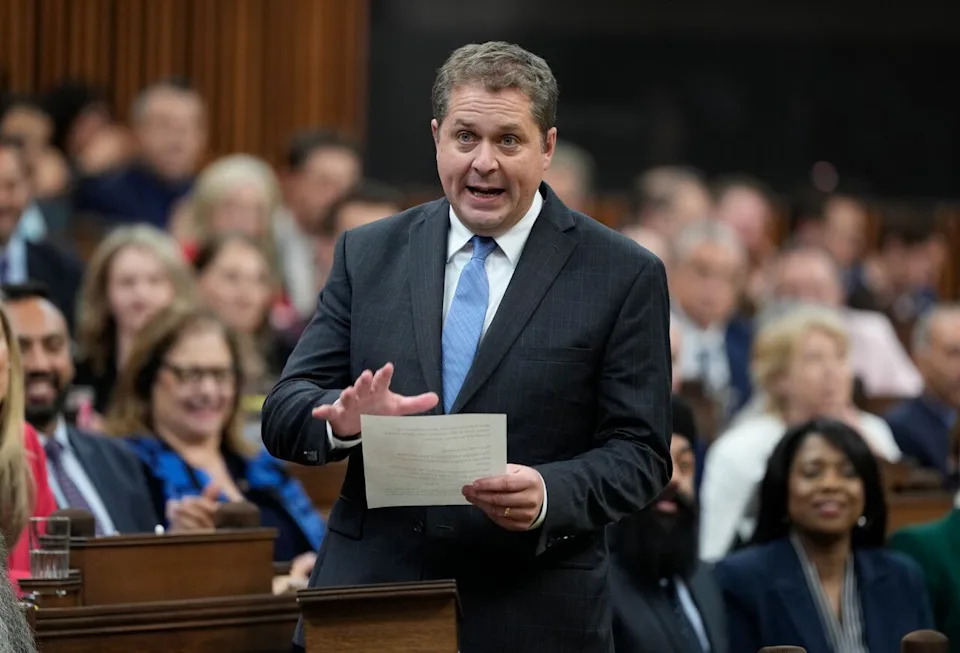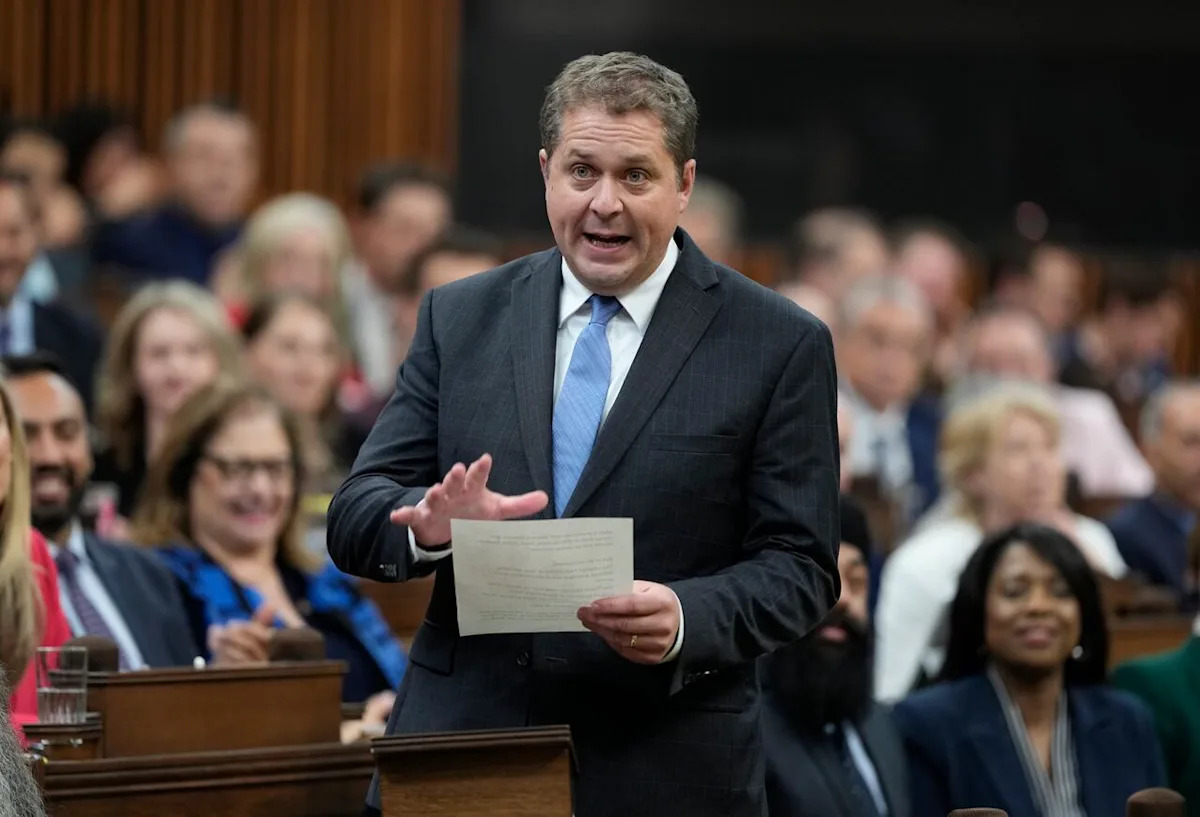Canadian politicians and experts are pushing back against U.S. ambassador Pete Hoekstra’s frustration over the anti-American sentiment he’s seen in Canada after U.S. President Donald Trump hit the world with tariffs.
“When you kick the dog, you can’t blame it for snarling back,” said Flavio Volpe, president of the Automotive Parts Manufacturers’ Association and member of the prime minister’s Canada-U.S. relations council.
“It’s gaslighting 101,” Volpe added. “You probably should get someone to tell him a little bit more about how to properly do Canada-U.S. diplomacy, but I’m not sure he’d listen.”
On Thursday, Hoekstra said at an event hosted by the Halifax Chamber of Commerce he’s “disappointed that I came to Canada — a Canada that it is very, very difficult to find Canadians who are passionate about the American-Canadian relationship.”
“You ran a campaign where it was anti-American, elbows up, me too. You know, that was an anti-American campaign. That has continued. That’s disappointing,” Hoekstra said.
WATCH | Ambassador ‘disappointed’ in Canadians’ attitude with U.S.:
Volpe said Hoekstra “knows exactly what he’s doing when he makes those statements.… This is his style. I don’t know what his objective is, but maybe his audience is actually in Washington rather than across this country.”
“I try to ignore his rhetoric,” Volpe said.
Stephen Marche, a Canadian novelist and host of the Gloves Off podcast, told CBC’s The House that Hoekstra “is the person you send to a country to alienate it. He is a person who obviously has no interest in maintaining really decent U.S.-Canadian relations.”
“I think we need to steadily ignore him,” Marche added, echoing Volpe’s sentiments.
Canadians will react to attacks, says Andrew Scheer
In an interview on Rosemary Barton Live that airs Sunday morning, Conservative House Leader Andrew Scheer said any time a foreign country slaps tariffs or raises the idea of annexation, “of course Canadians are going to react negatively to that.”
“We are different, we are distinct. I don’t like to define Canada in the negative. I like to define Canada in the positive,” Scheer told host Rosemary Barton. “We’re more than just not being American. We have a proud history.”
On Thursday, Hoekstra also pointed to a Canadian cabinet minister’s “war” references as not helping relations between the two countries.

Conservative House Leader Andrew Scheer says Canada has ‘a proud history’ and Canadians will react negatively to foreign countries slapping tariffs of raising the idea of annexation. (Adrian Wyld/The Canadian Press)
Finance Minister François-Philippe Champagne used the word “war” multiple times this week while talking about how Canada is trying to re-invent the Canadian economy like it did back in 1945 after the Second World War.
“We’ve been there during the war when it came to aluminum, we’ve been there during the war when it came to steel,” Champagne told reporters. “We’ve been there during the war when it came to work together with American friends and allies.”
Hoekstra fired back saying using such language is “a dangerous place to go.”
When asked for his thoughts on Hoekstra’s comments, Champagne struck a diplomatic tone and told Barton “the tariffs have been impacting a number of works and sectors in Canada like we have not seen in a very long time or ever.”
WATCH | Reaction to U.S. ambassador ‘disappointed’ with anti-Americanism in Canada:
“So obviously this is deeply felt in Canada…. I think [Hoekstra] understands that Canadians have felt sad with what has happened. But at the same time, I’m sure he understands how much we have done together and will continue to do together.”
Hoekstra defended Trump’s tariffs by saying countries competing with Canada to sell products to the U.S. are facing higher rates.
“Your relative position has improved,” he said. “And you, your cabinet describes this as a relationship that America has turned its back on.”
In response, Volpe said, “I unfortunately only speak English and I don’t understand what he’s saying there. Everybody was better off nine months ago, including Canada.”
“Maybe because he wasn’t the ambassador nine ago he didn’t know that, but he’d be hard-pressed to find anybody who has any relationship with data to agree with him.”

